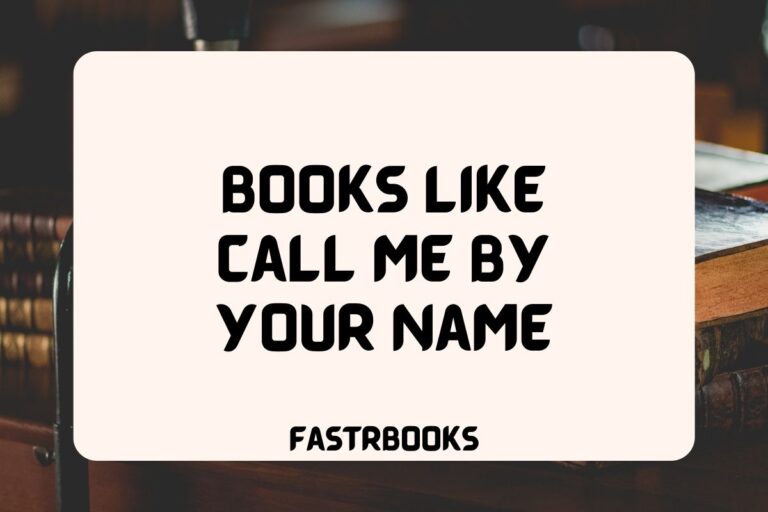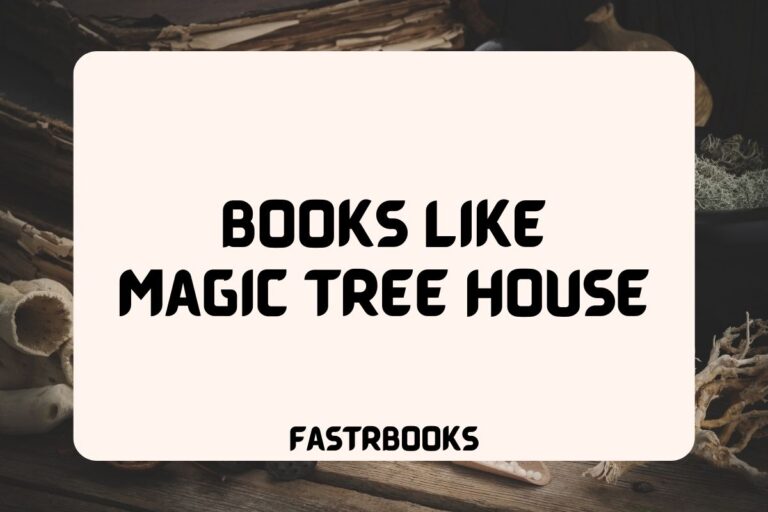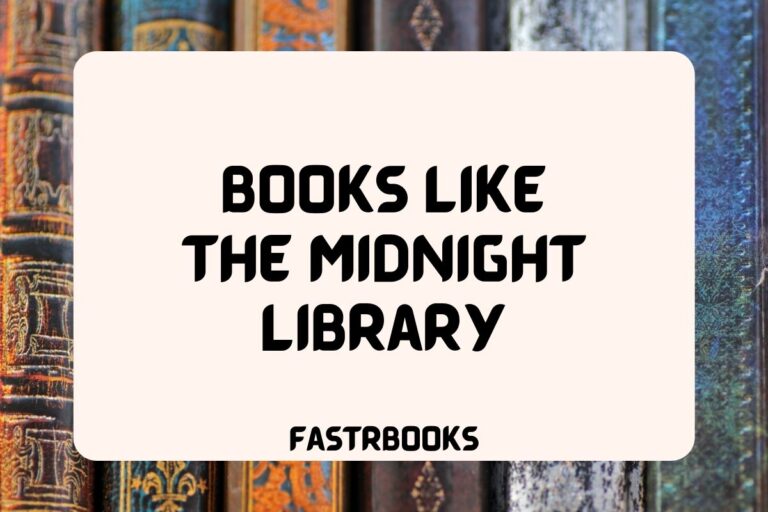10 Books Like Flowers for Algernon
Imagine waking up one day, your mind sharper than ever before, only to realize the vast gulf that separates you from those you once called friends.
This is the poignant reality faced by Charlie Gordon in Daniel Keyes’s Flowers for Algernon, a powerful exploration of intelligence, isolation, and the complexities of the human experience.
If you journeyed alongside Charlie, grappling with the ethical dilemmas of scientific advancement and the profound loneliness of alienation, then you’re likely searching for stories that resonate with similar themes.
Well, buckle up, because this blog is your roadmap to a treasure trove of books that will challenge your perspective and leave you pondering the very essence of what it means to be human.
Books Like Flowers for Algernon
1. The Curious Incident of the Dog in the Night-Time by Mark Haddon
This novel tells the story of Christopher John Francis Boone, a 15-year-old boy who excels at mathematics but finds people and their emotions perplexing.
He detests being touched and distrusts strangers, living a life governed by patterns, rules, and a fondness for prime numbers.
The story unfolds with Christopher’s investigation into the murder of a neighbor’s dog, which leads him on an emotionally charged journey that challenges his understanding of the world and his place within it.
Major Similarities:
Similar to Flowers for Algernon, this book delves into the inner workings of an unconventional mind, exploring themes of intelligence, social isolation, and the struggle for personal autonomy.
Both novels are narrated from the perspective of protagonists who perceive the world differently from those around them, offering readers a profound insight into the challenges and triumphs of characters living with cognitive differences.
2. Never Let Me Go by Kazuo Ishiguro
Set in a dystopian world, Never Let Me Go follows the lives of Kathy, Tommy, and Ruth, who grow up at a seemingly idyllic English boarding school.
As they mature, they gradually uncover the dark truth about their existence and the fate that awaits them. The novel is a haunting tale of love, friendship, and the moral complexities of humanity.
Major Similarities:
Both Never Let Me Go and Flowers for Algernon confront themes of scientific ethics, the essence of humanity, and the impact of societal expectations on the individual.
The stories question what it means to be human and explore the profound effects of scientific advancements on personal identity and relationships.
3. The Speed of Dark by Elizabeth Moon
This novel is set in the near future and follows Lou Arrendale, an autistic man who is offered a treatment that could potentially “cure” his autism.
The story explores Lou’s dilemma over whether to undergo the treatment, delving into themes of identity, normalcy, and the concept of self. Through Lou’s perspective, the novel presents a richly detailed portrayal of life on the autism spectrum.
Major Similarities:
Similar to Flowers for Algernon, The Speed of Dark examines the ethical implications of altering one’s cognitive abilities and the societal pressures to conform to a perceived norm.
Both books offer a deep exploration of the protagonists’ internal struggles with their identities and the choice between remaining true to oneself or changing to fit societal expectations.
4. Flowers for Algernon by Daniel Keyes
This classic novel narrates the story of Charlie Gordon, a mentally disabled man who undergoes an experimental surgical procedure to increase his intelligence.
The story is told through progress reports written by Charlie, allowing readers to witness firsthand his intellectual growth and the subsequent emotional and social ramifications. As Charlie’s intelligence peaks, he faces the complexities of human relationships, self-awareness, and the transient nature of happiness.
Major Similarities:
While Flowers for Algernon cannot have similarities with itself, it sets the benchmark for novels that tackle the themes of intelligence augmentation and its effects on the human psyche.
Other books on this list share its exploration of the ethical considerations of scientific experimentation on humans, the quest for understanding human emotions and relationships, and the profound impact of cognitive changes on an individual’s life.
5. We Have Always Lived in the Castle by Shirley Jackson
This novel tells the story of the Blackwood family, particularly focusing on sisters Merricat and Constance, who live in isolation after a mysterious family tragedy.
The story, narrated by Merricat, reveals her unique and sometimes disturbing perspective on the world. As the plot unfolds, the reader is drawn into the sisters’ eerie and secluded life, uncovering the dark secrets that bind them.
Major Similarities:
Like Flowers for Algernon, We Have Always Lived in the Castle explores themes of isolation, otherness, and the struggle to find one’s place in a world that does not understand or accept difference.
Both novels are narrated from the perspectives of protagonists who are perceived as outcasts by society and whose unique ways of seeing the world challenge the norms and expectations of those around them.
6. A Scanner Darkly by Philip K. Dick
This novel is set in a near-future America under the grip of a drug epidemic, focusing on Bob Arctor, an undercover agent assigned to infiltrate the drug culture.
However, the line between his identities begins to blur due to the mind-altering drug Substance D, leading to a profound identity crisis and questioning of reality. The narrative dives deep into themes of surveillance, paranoia, and the loss of self amidst a society in decay.
Major Similarities:
Like Flowers for Algernon, A Scanner Darkly explores the impact of altering one’s mental state on personal identity and perception of reality.
Both novels question the nature of self-awareness and the effects of external interventions (whether through scientific experimentation or drug abuse) on the mind and body, offering a critique of societal and ethical norms.
7. More Than Human by Theodore Sturgeon
This novel explores the concept of gestalt consciousness through the lives of several misfits with unique abilities who come together to form a single, more powerful entity.
Sturgeon examines what it means to be human, the importance of empathy, and the ethical implications of possessing extraordinary powers. The narrative weaves together the individual stories of these characters, exploring their struggles to find belonging and purpose.
Major Similarities:
Both More Than Human and Flowers for Algernon delve into the themes of human enhancement and the quest for understanding one’s place in the world. They challenge the notion of normalcy and intelligence, highlighting the impact of extraordinary abilities on personal identity and social relationships.
The exploration of what it means to be truly human and the moral dilemmas associated with altering the human condition are central to both stories.
8. Do Androids Dream of Electric Sheep? by Philip K. Dick
This novel, set in a post-apocalyptic future, follows Rick Deckard, a bounty hunter tasked with “retiring” rogue androids who are virtually indistinguishable from humans.
The story questions the nature of humanity and empathy as Deckard grapples with his feelings towards the androids and his role in society. The narrative explores themes of reality, identity, and the ethics of artificial intelligence.
Major Similarities:
Similar to Flowers for Algernon, Do Androids Dream of Electric Sheep? examines the ethical and philosophical questions surrounding the enhancement of intelligence, whether through biological or artificial means.
Both novels probe the boundaries of human consciousness and the complexities of emotional and intellectual growth, challenging readers to consider the essence of human identity.
9. The Left Hand of Darkness by Ursula K. Le Guin
Set on the planet Gethen, this novel follows Genly Ai, a human envoy sent to facilitate Gethen’s inclusion in a vast interstellar civilization.
The inhabitants of Gethen are ambisexual, with no fixed gender, leading to a society profoundly different from Earth’s. Through Genly’s experiences, the novel explores themes of gender, communication, and understanding across cultural divides.
Major Similarities:
Like Flowers for Algernon, The Left Hand of Darkness delves into the exploration of alienation and the struggle to communicate across fundamentally different perspectives.
Both novels address the challenge of understanding and empathy between beings who perceive the world in vastly different ways, emphasizing the value of diversity in thought and experience.
10. The Giver by Lois Lowry
This novel is set in a seemingly utopian society where pain, suffering, and choice have been eliminated to ensure sameness and harmony. The story centers on Jonas, a 12-year-old boy who is selected to inherit the position of Receiver of Memory, the person who stores all the past memories of the time before sameness.
As Jonas receives these memories, he begins to question the society’s foundations and faces the difficult choices that come with knowledge and emotion.
Major Similarities:
The Giver and Flowers for Algernon both explore the themes of knowledge, memory, and the cost of societal progress. Each story questions the value of intelligence and awareness in a world that may not be prepared to handle the consequences.
Both novels portray the journey of characters who undergo profound transformations that challenge their perceptions of the world and their places within it, ultimately leading to a critical examination of the human condition.






